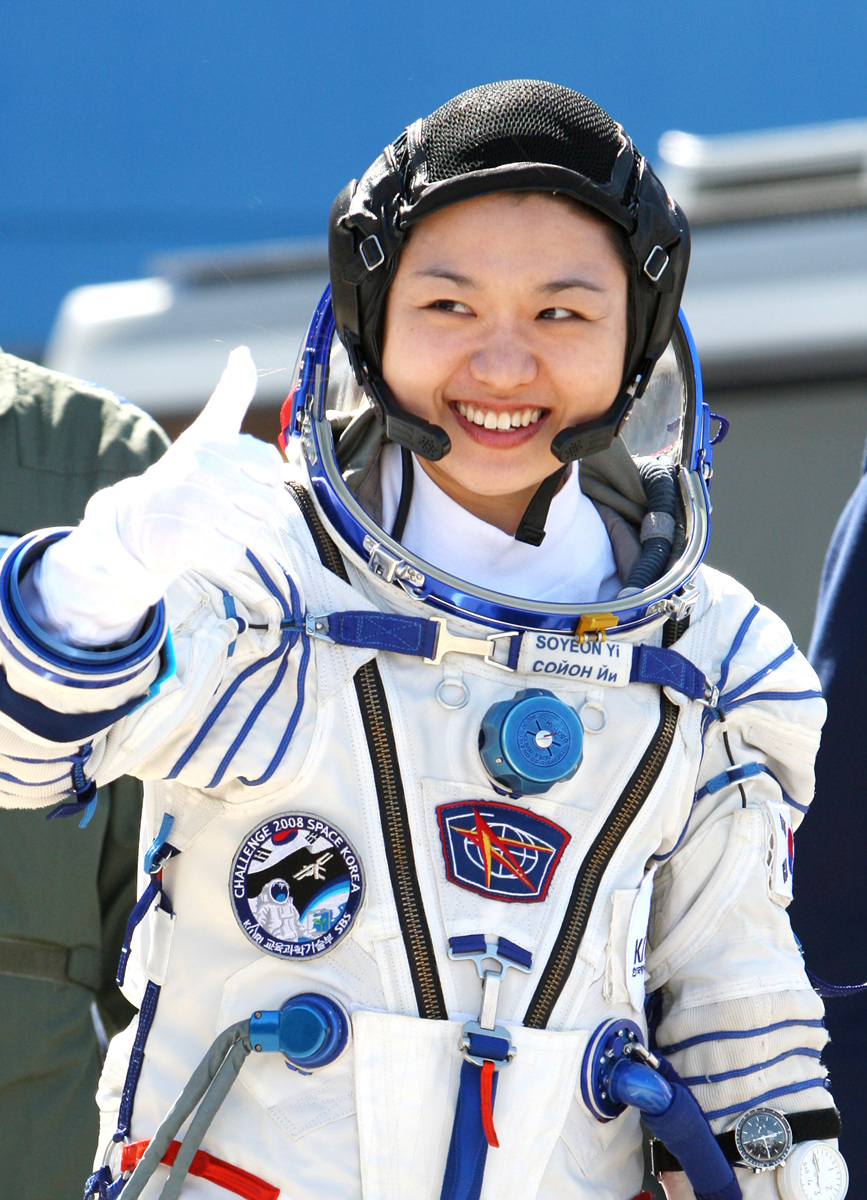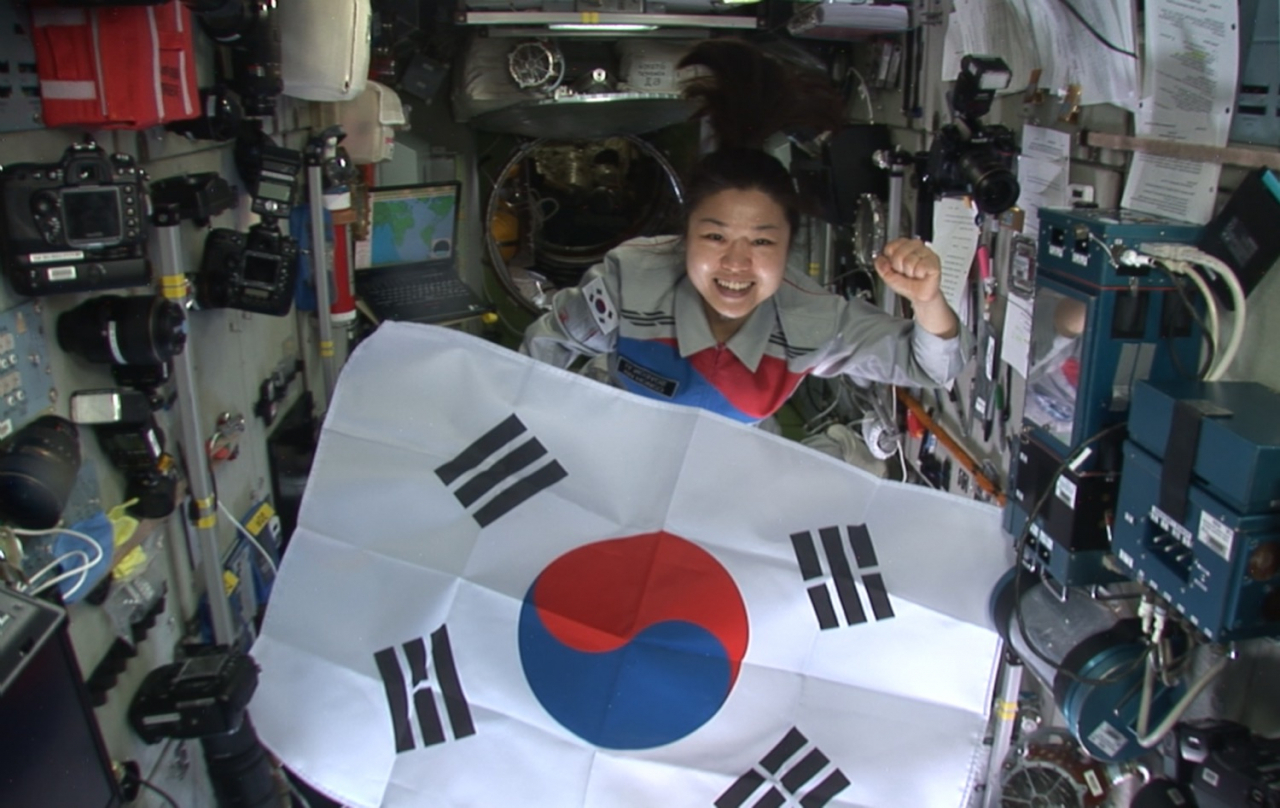[Beyond Earth] ‘We are all earthlings after all’
Korea’s first and only astronaut says many astronauts become more interested in global issues after space flights
By Kan Hyeong-wooPublished : April 30, 2023 - 14:38

“As a human who has looked at the Earth from space with the naked eye, I’ve come to a position where it is very difficult for me to ignore the problems on Earth. And that is something that all astronauts have in common,” said Yi So-yeon, Korea’s one and only astronaut, in an interview with The Korea Herald on April 25.
Yi became the first Korean to travel to space when Soyuz TMA-12, a Russian space mission to the International Space Station, was launched on April 8, 2008. She recently wrote “Meet Me at the Universe,” a book recalling her time before, during and after she became an astronaut. The book was published on April 8 this year to mark the 15th anniversary of her space flight.
“I’m an earthling before I’m a Korean. The problems in Korea are important, but the problems of the world are also very important. Those neglected in Korea are having a tough time, but those neglected by international society could be having a tougher time,” she said.
Yi pointed out that many astronauts in fact take action in international campaigns and try to offer support for them. According to her, some Russian astronauts are likely to have regretful feelings toward Ukraine and some American astronauts take interest in the problems of China because they have had the opportunity to realize that we are all earthlings.
“I have a responsibility to be concerned about not only the problems in Korea but also about people who are left out across the world,” she said.
Yi currently works at Noul, a blood cell diagnosis platform developer in Korea known for its malaria-detecting technology, as the managing director of business development and partnership.
On the fact that there has not been a second Korean astronaut since her space flight, Yi clarified that it is natural for countries outside of China, Russia and the US -- the global space powerhouses that have the capabilities to shoot up space launch vehicles and conduct various space projects -- to see a large gap between their first and second astronauts.
“In the cases of Europe and Japan, although they now send an astronaut every year or two, it took between 10 to 20 years for their second astronaut project because they need something greater than just the symbolic meaning of the first astronaut,” she said.
Yi expressed hopes that Korea may see its second astronaut in the next 10 years following the country’s recent series of successful space missions: the homegrown Nuri rocket and the lunar orbiter Danuri.
“Now, many people are showing interest in space. If Korea can be on par with the countries actively engaging in space projects, joint missions will come naturally. And if we continue to do more on that end, there will come a point where we hope to send another Korean astronaut into space,” she said.

Yi advised that space projects should not be rushed as she watched how space experts with more experience approach various tasks and projects.
“When I met space experts from other countries, they were preparing from a long-term point of view instead of looking to achieve results in the short term. It’s important to do certain things well and in a hurry, but it’s also important to take some time with other things. Korea has gotten off to a late start. Countries have different scales in terms of resources, money and personnel and this changes what each country can do. If we get too ahead of ourselves in a hasty manner, we might make mistakes,” she said.
As the final prime candidate for the Korean Astronaut Program, Yi triumphed in a nationwide selection process which began with about 36,000 applicants. She had to undergo an extremely demanding training course that lasted 15 months at the Gagarin Cosmonaut Training Center near Moscow.
“When I was being trained in Russia, the instructors who had been taking care of the astronauts for a long time told me that the level of intelligence required for an astronaut was lower than one might expect. They said the standards of physical and mental health were really high,” she said.
Yi especially underscored the importance of one’s mental health and ability to handle stress, pointing out that space is a deadly place where one crew member with a poor level of mental health can ruin the entire mission.
“The most important thing is how healthy you are mentally. Once people are all grown up, you can’t really change their mental health even through training,” she said.
Yi became one of the most famous and sought-after figures once she came back to Earth after a nine-day mission in space. Between May 2008 and May 2012, she conducted 235 lectures, attended 90 events and underwent 203 press interactions as Yi was at the forefront of promoting science and engineering nationwide. She served as a researcher at the Korea Aerospace Research Institute for four years, two years more than the required term under the government’s astronaut program. Yi eventually went to the University of California’s Berkeley Haas School of Business to study for a Master's in Business Administration.
“Sometimes I wonder if there would have been more opportunities if I had stayed longer in Korea. When I was traveling across the country to deliver lectures, the science culture industry was not being fostered like it is now,” she said.
“I think it was right for me to meet various space experts in many countries and learn more about the space sector to broaden my perspective. With that, I now have hopes that there may be opportunities for me to offer help as Korea’s space sector becomes diversified and more people try to make it in the space sector.”









![[Kim Seong-kon] Democracy and the future of South Korea](http://res.heraldm.com/phpwas/restmb_idxmake.php?idx=644&simg=/content/image/2024/04/16/20240416050802_0.jpg&u=)








![[KH Explains] Hyundai's full hybrid edge to pay off amid slow transition to pure EVs](http://res.heraldm.com/phpwas/restmb_idxmake.php?idx=652&simg=/content/image/2024/04/18/20240418050645_0.jpg&u=20240418181020)

![[Today’s K-pop] Zico drops snippet of collaboration with Jennie](http://res.heraldm.com/phpwas/restmb_idxmake.php?idx=642&simg=/content/image/2024/04/18/20240418050702_0.jpg&u=)